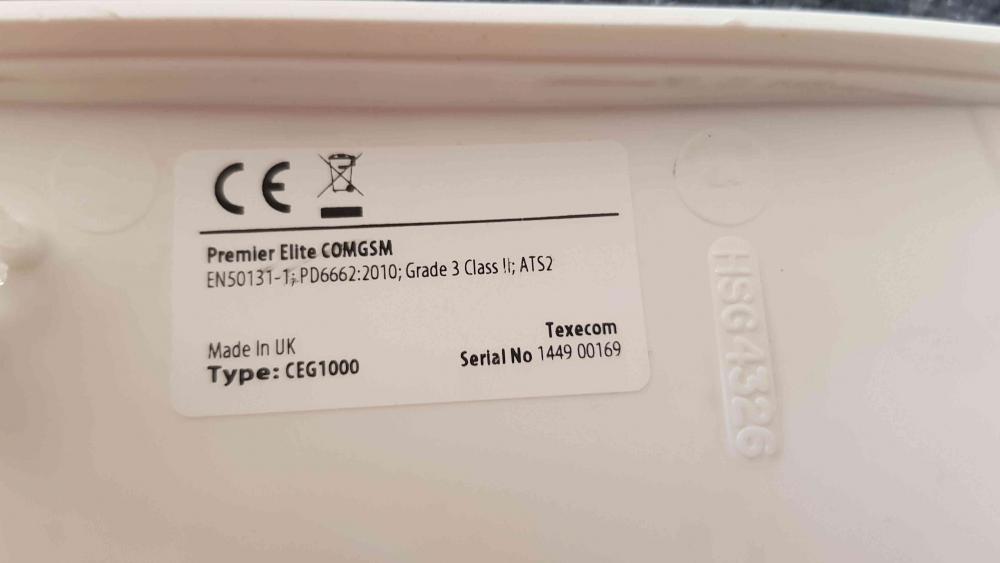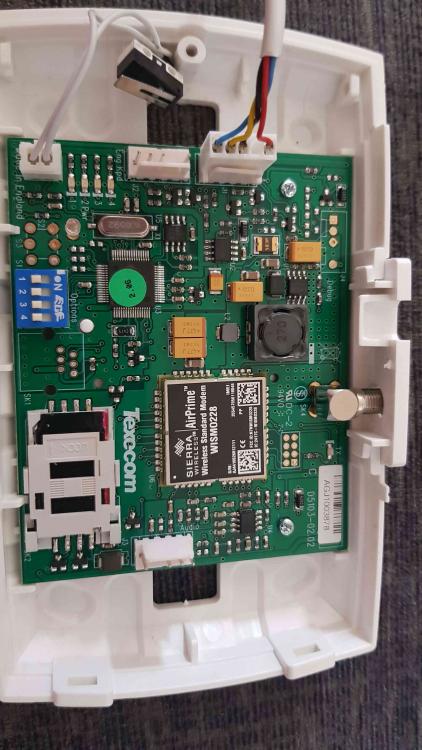Search the Community
Showing results for tags 'gprs'.
-
Hello all, A few months back I installed a Texecom Premier Elite 48 control panel, with Ricochet PIR's, door contacts, a could of hard wired devices. Along-side this system, I wanted to be able to be alerted to any alarms so bought a GSM communicator plugin for it. The part number is CEG1000. The set-up took a few reads of the manual, but I got there and it was all working very well, it was tested, receiving messages, replying to them and alerting me if an alarm was activated. A few weeks after installation the system started beeping intermittently and gave me an error message: ATH Path Fault COM1 Fault No ATS Available. I put it into engineer mode, disconnected the communicator from COM1, opened it up, gave it a good old clean out and plugged it back in. The system happily accepted it and all was right in the security world. The device then started to throw this error again, and it grew more frequent, first a month, then a fortnight, a week, a day, an hour, and now it is a matter of seconds. I'm wondering if someone could point me towards exactly what I should be looking at, as the cause of the issue. I have verified the sim card works, the panel is communicating with the GSM device and vice versa. Having looked around the forum I have found many people with this error, but they all seem to be using the DigiCom devices which are connected to the phone lines. The GSM module was bought second hand, so I am aware that this may play a part, but before I get in contact with the person it was purchased from, I want to make sure I rule out all other problems. Anything I can try and test would be greatly appreciated. John Picture of device: http://imgur.com/a/F3BU0 Picture of model: http://imgur.com/a/10vou
- 24 replies
-
- texecom premier elite 48
- gprs
-
(and 2 more)
Tagged with:
-

Uk Security Industry To Lead Best Practice?...
Joe Harris posted a blog entry in Electronic Security & Technology
. We should be utilising Dual SIM card devices to improve security and resilience... As anyone in the Electronic Security industry will be aware, there have recently been many reported intermittent failures across all of the current Major Network Operators (MNO's) such as T-Mobile and Vodafone Some of this has been the result of MNOs upgrading their services to support 4G signalling (In some cases re-purposing 2G bandwidth for 4G services). Other outages have been due to planned maintenance work in the majority of cases. A small number have been the result of unplanned and unforeseen technical issues. Our friends in Éire have also seen a number of instances where the mobile communications have been blocked intentionally by those seeking to attack a protected site or asset. A significant proportion of the devices which currently utilise GPRS / 3G connections are dual path devices where the signal can be routed through the alternate path in the event of such an outage - Just as it was designed to do so. We are as an industry, increasingly embracing the idea of replacing single path PSTN devices with (in some cases) single path mobile path devices. Some would contend that the death of PSTN connectivity is a certainty at some point in the future. It can certainly be agreed that pressures to compress data traffic of analogue communications could lead to further issues such as seen previously. If we are to go ahead with such a mass migration of signalling devices, across to a medium that is currently under significant pressure to evolve, then we should ensure that we are taking all appropriate steps to mitigate any potential for our single path devices to fail to signal. I propose that we should adopt Dual SIM devices wherever possible to improve our capacity to overcome either malicious attempts to prevent signalling and also provide for redundancy of communications when a MNO has an outage of their core networks (something which has happened too often already). Some providers may indicate that they already provide a SIM capable of switching between several networks. This is absolutely true, however, what is not made clear in some cases is that an outage of the MNO with whom the SIM is hosted would mean that the SIM cannot 'lock onto' another network and is in effect rendered incapable of signalling due to an outage of a single supplier. With a Dual SIM card device, each SIM can have a different host network and as such provide much greater resilience. A number of smart phones already utilise Dual SIM capability, in part to support international travel and also in part for improved signalling capability and fault mitigation. As an industry we have for many years struggled to keep up with the changing pace of technology. In this aspect, we should now take the lead and establish the very best practise in the tradition of true British engineering and quality. Take the time to encourage your signalling providers of choice and the ARCs you utilise to support this approach and set the bar higher in our continuing fight to secure and protect our end users.


